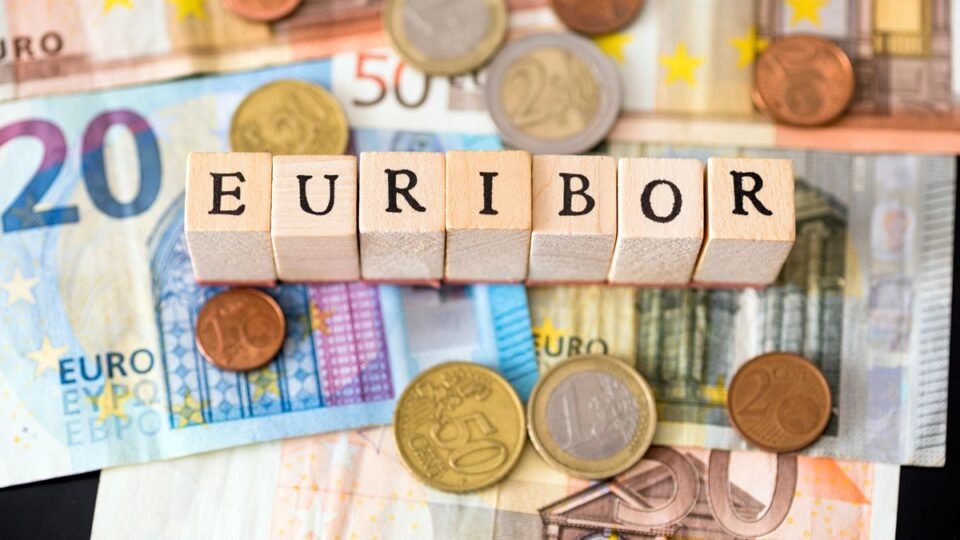A comprehensive overview of Euribor (Euro Interbank Offered Rate), a crucial benchmark interest rate in the Eurozone. It explains what Euribor is, how it’s calculated, the types of Euribor rates, and why it’s important for both consumers and businesses. The article also delves into recent Euribor rate hikes, their implications for loans and mortgages, and strategies to protect against rising rates. Perfect for anyone looking to understand how Euribor influences the economy and financial products.
Table of Contents:
- What is Euribor?
- History of Euribor
- How is Euribor Calculated?
- Types of Euribor Rates
- 4.1 One-week Euribor
- 4.2 One-month Euribor
- 4.3 Three-month Euribor
- 4.4 Six-month Euribor
- Why is Euribor Important?
- How Does Euribor Affect Loans and Mortgages?
- Euribor and Economic Policies
- How Euribor Affects Consumers and Businesses
- Conclusion
- FAQs
What is Euribor?
Euribor, short for Euro Interbank Offered Rate, is the interest rate at which European banks lend money to each other in the interbank market. This rate is critical for financial institutions and has a significant impact on the economy. Essentially, it’s a benchmark used to set interest rates for various financial products, including loans and mortgages.
History of Euribor
The Euribor was introduced in 1999 when the Euro was launched as the single currency for many European countries. It replaced several national interbank rates and created a unified system for calculating interest rates across the Eurozone.
How is Euribor Calculated?
Euribor is calculated daily based on the average interest rates at which a panel of European banks offers unsecured loans to one another. The rates are gathered, and the highest and lowest are excluded before calculating the average. This method ensures a more stable and representative rate.
Types of Euribor Rates
There are multiple Euribor rates based on different loan durations. These include:
4.1 One-week Euribor
The interest rate for interbank loans that last one week.
4.2 One-month Euribor
The rate for loans with a one-month duration, commonly used for short-term loans.
4.3 Three-month Euribor
A standard rate used for many consumer financial products, such as variable-rate mortgages.
4.4 Six-month Euribor
Used primarily for medium-term financial products, such as business loans.
Why is Euribor Important?
Euribor serves as a foundation for a range of financial products. Its fluctuations can affect everything from individual mortgage payments to the cost of borrowing for businesses. When Euribor rises, borrowing costs increase, and when it falls, borrowing becomes cheaper.
How Does Euribor Affect Loans and Mortgages?
If you have a variable-rate mortgage or loan, the interest rate you pay is often tied to Euribor. When Euribor rises, so do your payments, potentially making loans more expensive and affecting disposable income. On the other hand, a lower Euribor can provide relief by lowering monthly payments.
Euribor and Economic Policies
Euribor is influenced by the European Central Bank’s (ECB) monetary policies. When the ECB raises or lowers its benchmark interest rates, Euribor typically follows suit. The rate also reacts to changes in the broader economy, such as inflation and economic growth.
How Euribor Affects Consumers and Businesses
Higher Euribor rates mean higher interest payments for consumers on mortgages and loans. Businesses, especially those reliant on borrowing, also face increased costs, which can stifle growth and profitability. Conversely, higher interest rates can benefit savers who earn more interest on deposits.
Conclusion
Euribor plays a vital role in the Eurozone’s financial markets, influencing everything from personal loans to corporate borrowing. Understanding how it works and its impact on the broader economy can help consumers and businesses make informed financial decisions, particularly in times of rising rates.
FAQs:
- What does Euribor stand for?
Euribor stands for Euro Interbank Offered Rate, the rate at which European banks lend to each other. - Why has Euribor increased recently?
Recent hikes in Euribor are largely due to inflationary pressures and the European Central Bank’s efforts to control rising prices. - How does Euribor affect my mortgage?
If you have a variable-rate mortgage tied to Euribor, your interest rate and monthly payments will rise when Euribor increases. - Can I switch to a fixed-rate mortgage to avoid Euribor fluctuations?
Yes, switching to a fixed-rate mortgage can protect you from future Euribor increases by locking in a stable interest rate. - What is the difference between Euribor and LIBOR?
Euribor is the benchmark rate for the Eurozone, while LIBOR was used primarily in the U.S. and U.K. until it was phased out.

